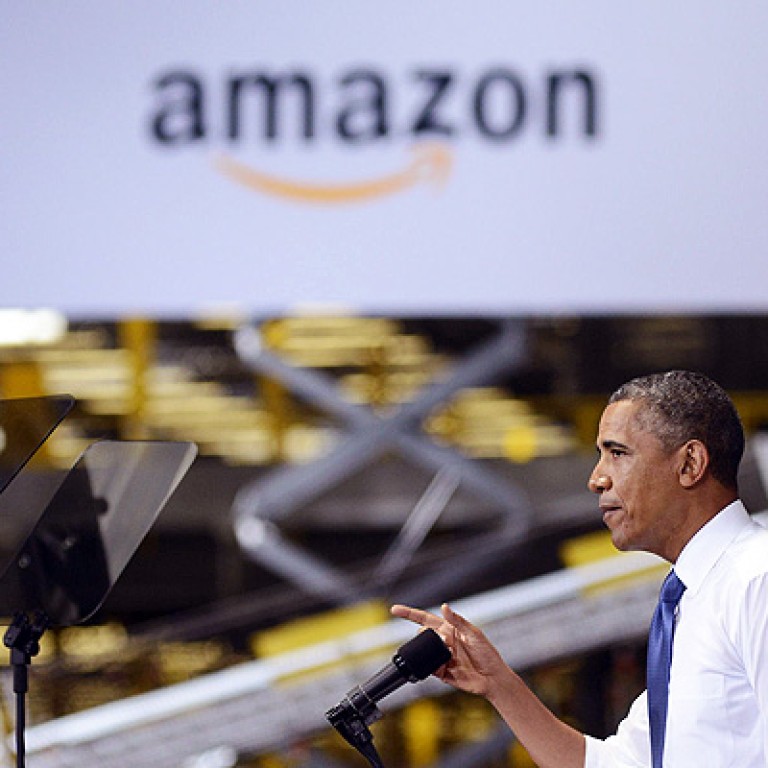
Obama revives plan for corporate tax cut as part of 'grand bargain'
Republicans react coolly to offer to cut business taxes in exchange for more investment in jobs
US President Barack Obama has revised a tax reform plan, backing a cut in corporate tax rates in return for a pledge from Republicans to invest in programmes to generate middle-class jobs.
The proposal, an effort to break a stalemate with Republicans over budget policy, comes as Obama and his congressional opposition are headed to a showdown over taxes and spending.
It was the president's first concrete proposal in an economic offensive that he launched last week in Illinois to set his terms for the coming budget battles with the Republican-controlled House.
But only the packaging was new. The president essentially cobbled together two existing initiatives that have been stalled in Congress: corporate tax changes and his plan to create jobs through education, training and public works projects.
Obama outlined the terms of his tax plan early last year during election campaigning, when he said the corporate tax rate would be reduced to 28 per cent, from 35 per cent, with a lower rate of 25 per cent for manufacturing firms.
During a visit to a cavernous Amazon distribution centre, Obama described a "grand bargain" for the middle class he said would stimulate the economy while giving businesses the lower tax rates they had long sought.
"If folks in Washington really want a 'grand bargain', how about a grand bargain for middle-class jobs?" Obama told a crowd of 2,000. "If we're going to give businesses a better deal," he added, "we're going to give workers a better deal, too."
While the president presented the proposal as a concession, Republicans dismissed it more acidly than usual. "It's the opposite of a concession," said Brendan Buck, a spokesman for Speaker John Boehner.
In the Republicans' view, Obama's offer was less of a "grand bargain" than an effort to extract a new fiscal stimulus programme with money from a corporate tax cut that would end up, for accounting reasons, initially generating billions of dollars of revenue for the government.
Administration officials said the proposal, like past tax overhauls, would raise extra revenue on a one-time basis that could offset new spending on programmes to boost jobs.
The revenue would result from the transition to a revised code - for example, as companies paid a one-time fee on profits they earned overseas but did not bring home because they did not make them subject to US tax.
For two years, Republicans have rejected most of Obama's initiatives to create jobs, in part because, to avoid increasing the budget deficit, he has paired those ideas with proposals to repeal or reduce tax breaks for wealthy individuals and corporations, especially oil companies.
By presenting the tax-rate cut as a stand-alone proposal, the White House hopes to make it more appealing to Republicans - or, failing that, to depict them as obstructionists.
